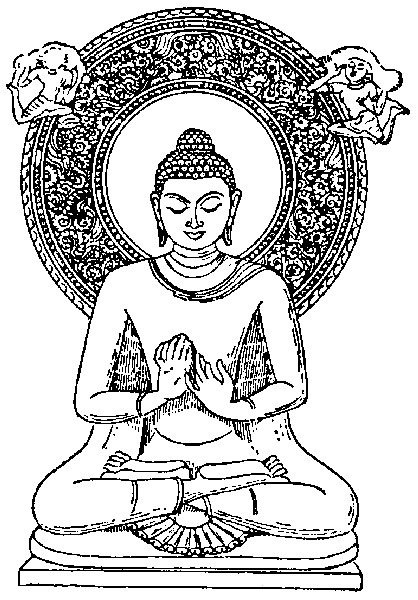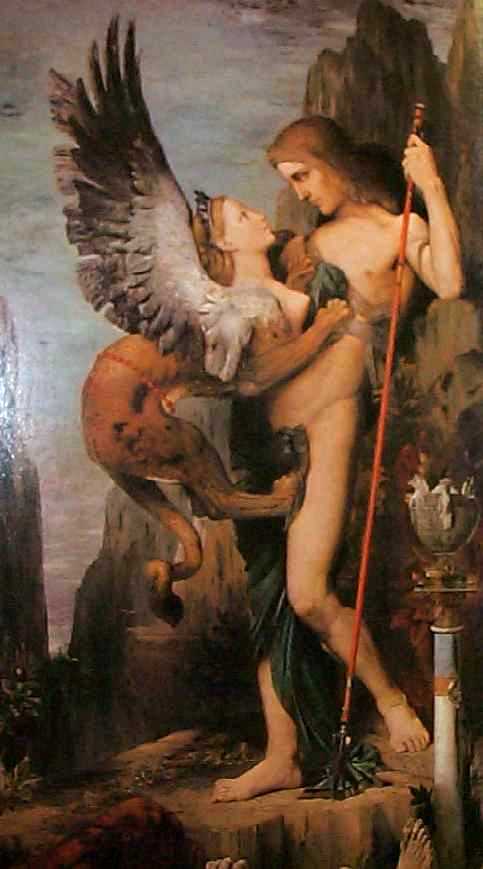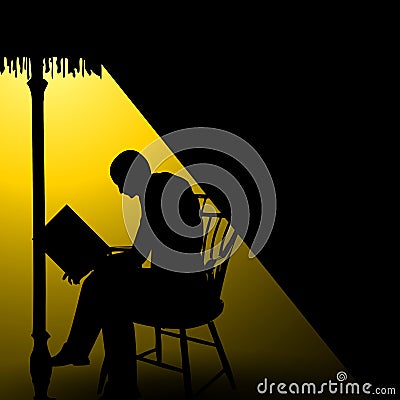
- Arjun Rajkhowa
The journey around London and the West End is a long one. It’s a bit strange in a way. There are so many epithets for it: big, wide, polyglot, mixed, far-off. There are so many things one can say. It is a bit difficult for one to know the difference between something real and something in the mind. That difference is metaphorical. Each place carries its own metaphor. The metaphor of this one is compositeness. Many of the places are Classical or Gothic or Corinthian, many of the people “multi-exit”, many of the buildings new glass monsters. Yet all of them speak of a certain glory. One only has to look hard enough. It is said that in this mixed, often mad, world of ours, each thing that is gives up something of what it is, to let the rest become something that is bigger. Each thing halves in attrition, for the big things to become bigger. So, in so many of these warren-like places, one just has to find that something. You need a well roundedness to let things in. There is always something to get, from the smallest of places. Something from the laconic street-poser; something from the pithy, incurious daily-wager; something from the vituperative foreign businessman; something from the harangue of the left-out; something from everywhere. Things, of course, change. There have been so many changes here. The people are new, the ideas are new, the motives are new, and, I daresay, even the accents are new. What happened to the fully formed vowels? Who took away the second syllables? This damned mess-up of the new half-words! However, coming back to the topic, the playhouses are exempt from these. They live in a big, wide, surreal space, where nothing else can live. They live away from the outside. They are dreamier. In the outside, dreams are daily bruised. In the inside, dreams are daily dreamt. They whisk you away, far way; albeit, for that much time. What you do with it is wholly your business.
Equus
Gielgud Theatre, Shaftesbury Avenue
The play Equus is made of many ideas. The writer, Peter Shaffer, has written a narrative that holds strongly at the axes. Richard Griffiths plays the narrator, a psychologist who tries to treat a boy, Alan Strang. The boy, seemingly inexplicably, blinds six horses at a stable in which he works. His case and his story are unlike anything Dr. Martin Dysart has seen before. The play is, in form, his own story – he seeks to investigate causes, find explanations, without any headway. The boy’s parents are divided. The father is an atheist and the mother a devout Catholic. The boy is torn between the two, both overbearing and erratic, in a home filled with innuendo. The boy becomes fixated on a creature of his mind and his obsession becomes a link of totems – the crucifix above his bed, television advertisements, fighting his father, a stable of horses, Christ, and an encounter with a girl. He worships that which he lusts after. The play is about the doctor’s fight, his inner tumult, his own sense of purpose and his own attempt to understand the madness of men and the big lies of normalcy. I can’t quite disclose everything about the plot, but the spaces and recesses that it has, and shows of a scalded psyche are immensely powerful. These performances are sterling: Richard Griffiths’ is an apogee by itself, Daniel Radcliffe is much liked and the actors who play Mr. and Mrs. Strang are tremendously strong. So is the ingenious use of minimalist sets, foreboding lights and the big horses with big hooves.
Billy Elliot – The Musical
Victoria Palace Theatre, Victoria Street
Everyone knows the Billy Elliot movie. The musical is one of the things one just has to do in the city. There are billboards and posters everywhere. ‘The Best British Musical In Years’ it says in Tubes, indeed, in Piccadilly, on the overhead flashing large-screens. It is seen everywhere and quite rightly so. The story is the same, snipped in bits and made more adaptable. The characters are the same, with some adjustment. The gay best friend in the movie, therein marginalized, becomes less so on stage. The father, the brother and the miners’ struggle become the leitmotif; the songs and sets and people all carry it forward. The characters are cast in their best fits: the grandmother, a surly woman, who delivers the best-served wisecracks; the sissy-bashing boxing-coach, who uses the choicest Irish on “them fags and twats, the like”; the ballet teacher and her razzmatazz. The women are hardy, the men misogynists, and both fight an endless struggle that is lost from the start. It has the sounds of realpolitik, too, what with songs like ‘Merry Christmas, Mrs. Margaret Thatcher!’ viz., bashful song about the PM’s privates! It makes its points on its toes and it looks right, too. Ian MacNeil’s designs – a rough, grey wall, a curved pub front, a pop-up, spiral pithead-shaped house – move the action along. Stephen Daldry tells his story so well, which is political and personal, loud and real. Outside the theatre, I heard an ashen-faced person say, ‘This being the best thingamabob in the years – not so much yam, innit?’ Thou sayest.
The Letter
Wyndham’s Theatre, Charing Cross Road
Somerset Maugham’s steamy thriller of 1927 is a great play to watch. The story is set against a colonial backdrop, in Indonesia. It has a set of old Empire characters and lots of intrigue. They belong to the usual circles – the district magistrate and wife, the estate-owner and wife, the attorney, the police officer – well ensconced, safe, and closely bound. One day, a round of pistol shots is heard in the estate-owner’s house. His wife has shot a man, a compatriot and friend, who, she says, tried to force himself on her. The police get involved and she details to them her imbroglio, why she had to shoot him, unthinkingly. She is charged and brought to trial and impunity seems furthest away. It is here that her careful lawyer discovers the secret of a letter, a letter that throws new light on motives and liaisons behind the contrite veneer of Seagrove’s character. He discovers the tale of a lover wronged, a Chinese mistress, and unrequited love. The play has a sharp tone. There is a wily ‘Chinaman’ as the lawyer’s secretary, who uses highfalutin English in long-winded sentences. A bit overdone, though it raised a few laughs. The cast has Anthony Andrews (David Copperfield) as the lawyer, and Jenny Seagrove as the wronged woman, who winces every time her lover’s non-white mistress is mentioned. The Letter is worth reopening.
The Glass Menagerie
Apollo Theatre, Shaftesbury Avenue
“The two most important things in the life of Tennessee Williams were his work and his sister. In the Glass Menagerie, his first major success in 1945, we see the making of a writer and the making of his sadness, too, in the character of Laura, the writer’s sister.” I watched this play with Mr. Summerscale and his daughter. I think I might have rushed into the theatre, to take succour from the rain, but also because this was my first Tennessee Williams play. The writer, Tom Wingfield, is both narrator and participant as the play moves along. He says, in induction, that the play is about his family: his mother, an eager, hyperbolic, Christian woman, and his sister, who is young, coy and painfully withdrawn. She has a crippled leg. The mother wants to equip her with skills, make her more suitable for “gentleman callers”, her oft-repeated quip. When she discovers her daughter’s truancy, she becomes standoffish, or overbearing, or both. Her son becomes untoward and angry. Yet, in the midst of all this, they spend an evening with a “gentleman caller”. He, fortuitously, turns out to be her high-school hero and erstwhile love-interest. They strike a rapport. She shows him her glass menagerie, her tiny, glass animal collectibles. He tries to draw her out. The glass menagerie becomes a metaphor for caged-ness. Jessica Lange plays the erratic mother (“Everybody’s nagging mom”), Amanda Hale the shy Laura, Ed Stoppard the temperamental son, and Mark Umbers the infectious “gentleman caller”. Jessica Lange is a two-time Academy Award winner and her last West End production was A Streetcar Named Desire. The sets are special, in that they work on a round platform atop the stage, and from it, a spiral metal staircase leads upwards. Rupert Goold’s directorial work and Mathew Wright’s design have been ranked highly everywhere.
Fergus Lamont
Traverse Theatre, Edinburgh
This is my favourite play. It is the closest I have come to sensing that. Edinburgh is the Scottish city and Glasgow is thought of as the lesser cousin. The play is essentially about what it means to be Scottish. The setting is a Scottish village and Fergus Lamont is the illegitimate child of an earl. He grows up amongst a household of galley-men and lackeys and goes to school. There, he is taught by a revolutionary Socialist teacher. He goes on to join the army, where he must cover up his pidgin Scottish accent and speak English like the English do. He marries a fellow Scotswoman, who speaks English like the English do, a celebrated writer who lets him dabble in poetry, and, in the meantime, philanders away with all the high-profile men in her life. The war arrives and the political rift between them widens. Fergus Lamont, testy lieutenant, fights the way, yet renounces it. His childhood girlfriend from the village leads marches against it. She pillories his writer-wife, who, romantic novels aside, takes up the English hatchet. They fall apart. The wife marries her wealthy politician-lover and he goes off in search of an ancestral home in a faraway Scottish village. There, he marries an unschooled woman and writes his poetry. His friend continues, till then end, to rally against the war in distant, and civilized, Paris. The play puts many elements in perspective, but its unequivocal message, political and personal, hits you strongly in the face. I don’t know the names of any of the actors, but they are the most powerful I have ever seen. The cast has just a handful, who jump from character to character, from Scottish dialect to Bloomsbury English. Theirs are impossibly versatile and well-trained acts. The play has been adapted from the eponymous book by Robin Jenkins. The tone and the movement are so essential, so strongly Scottish. Local atmosphere is all!
Carthage Must Be Destroyed
Traverse Theatre, Edinburgh
Alan Wilkins’ Carthage Must Be Destroyed is set against the backdrop of The Third Punic Wars and is a story of political intrigue and double-dealing. The Senate is under pressure to make Rome rich again. Consul Cato is a practical man and knows Carthage is the solution. If the Senate hears a clamour of voices against the old enemy, order could be restored. Carthage has too much money. Carthage is stockpiling weapons. Carthage is a threat to Rome. Delenda est Carthago – Carthage must be destroyed! Cato thinks Senator Gregor is just the right man to put the wheels into motion. He’s practiced in the art of privilege without responsibility, who works his whims around Roman baths and bought-off boys with good complexions. As Cato, Tony Guilfoyle is a tightly-coiled moralist and Damian Lynch’s Marcus is a smart operator. Sean Campion’s Gregor, though, is a remarkable study of one man’s rise and fall. From privileged hedonist to a garbled, shamed war-general, his last grasp of morality becomes a symbol of how empires fall. Comparisons with today’s War On Terror are skillfully suggested rather than crowbarred in. The entire first act is done in the nude, in a steamy sauna, around which the audience are seated. When Cato makes his big speech, he moves through the audience as if romping through the people of Rome. This is a serious, meaty, astute political drama.
Othello
The Globe Theatre, Bankside
The republic of Venice employs Othello (Eamonn Walker), a self-made man and a Moor, to defend its overseas territories against the Turk. But for all his military prowess, Othello remains an outsider in the city, an object of racism, envy and mistrust. As the Turkish threat gathers and Venetian forces are despatched to Cyprus, Iago (Tim McInnerny), a junior officer secretly enraged by his lack of promotion, exploits Othello’s ingenuous nature, driving him into an uncontrollable jealousy. Performed for the first time at The Globe, this is the final thing I did before leaving the city. The theatre is a rebuild of the original (1599) where Shakespeare worked, flanked on either side by The Tate Modern and The Anchor pub (which the original actors used for change of costume), opposite St. Paul’s Cathedral. Sam Crane as Roderigo plays the jilted lover and dogged nemesis of Cassio (played by Nick Barber). Bianca (Zawe Ashton) and Emilia (Lorraine Burroughs) are each a suitably voluptuous presence on stage. Zoe Tapper is the clear-voiced and disavowed Desdemona. Eamonn Walker, as Othello, is fearsome but sometimes unclear dialogue-wise, when he says things sotto voce. Tim McInnerny as Iago is the ruthless, manipulative spin-doctor and a tremendous actor. The best tickets are the five-quid standing-tickets, where you stand through the performance in the “Wooden-O”, and cheer and holler like the Elizabethan “groundlings”. This is a truly momentous experience.
The Lion King
The Lyceum Theatre, Wellington Street
Covent Garden
I watched this West End production of the Lion King some three years back, before we produced it in school, but the memory lives forever. I thought I’d write about it here! For most of you, it should be revision and recall. Try and imagine it in a labyrinthine theatre: a magnificent, slow sunrise, the chanting of a bedizened shaman (Rafiki, as fulsome in girth as our resident version), fabricated animals trooping down the aisle, flying overhead and flocking across the stage. It is so well done that you wonder where they (the director, Julie Taymor, and her creative team) can go from there. The visuals, however, never swamp the drama. The storyline remains clear and compelling. Africa comes alive in the beats of the Serengetti Plains. The company have won innumerable BAFTA, Olivier and Tony awards, making it the superlative mega-musical in London.
Bombay Dreams
Apollo Theatre, Victoria Street
I watched Bombay Dreams the last time round too, and it is now no longer in London but perhaps on Broadway. An Andrew Lloyd Webber production, this is Meera Syal’s combination of the glamour of the movies, heart-aching romance and catchy songs. The story is about a big film director’s daughter, who wants to move away from over-used Bollywood formulae and explore real life in cinema. She falls in love with her lead-actor, a boy from Dharavi, and she pairs him opposite tinsel town’s super-heroin. Don Black’s lyrics and A. R. Rahman’s music sit well together to get many lively songs a la Bollywood.
The Old Wembley
Wembley
The first thing I watched at The Old Wembley stadium was Dancing On Ice, which is a televised series where select couples of professional and non-professional skaters (like Duncan of Blue, who looked familiar) learn to ice-skate in a rigorous regimen with Torvill and Dean, the 1984 British Olympic champions at Sarajevo, and finally compete on an ice-ring in front of a live audience. The performances were enthralling. Torvill and Dean’s return to the ring roused a huge surge of nostalgia in the British viewing public. They were magnificent and the tickets were tough to get. The second thing I attended here was a Deep Purple concert, thronged in large part by rockers and Londoners who grew up on that culture. The air was charged. Roger Glover, Ian Paice, Ian Gillan, Don Airey and Steve Morse were all there, working the crowd up for a round-the-hour recce of their best-know hits. I, of course, knew only Highway Star and Smoke on the Water properly enough, and so had limited screaming to do. But was it electric, and how!
The Blue Man Group
New London Theatre, Drury Lane
The Blue Man Group is an avant-garde, percussion-driven show in a custom-built theatre. The Blue Men are Phil Stanton, Chris Wink and Matt Goldman, a trio of mute performers who wear blue grease paint, latex bald caps and black clothing! Their performance incorporates rock music, percussion, odd props, audience participation, sophisticated lighting and large amounts of paper. The show starts long after midnight. The oddities begin as soon as you step inside the auditorium. An electronic message board prompts you to shout out birthday greetings to people you don’t know. Staff members walk the aisles handing out ponchos, encouraging you to wrap it around your head and extremities. The Blue Man Group combines the best of theatre, art, music and science, and puts it in package full of humour and energy. After the show, if you go up and speak to them, like I did, they shake your hand and daub you in blue paint. It’s a euphoric experience.
Nederlands Dans Company
Sadler’s Wells Theatre, Islington
The Nederlands Dans is a product of classical ballet and modern dance. The Company is regarded as one of the most shocking, innovative and distinct dance groups in Europe. At Sadler’s Wells, the Peacock Theatre (in Holborn) and at the Lilian Baylis Theatre, more than twenty-four other companies perform in tandem. The NDT’s premiere company performs a full-length ballet by Jiri Kylian, One Of A Kind, on a starkly beautiful set by Japanese architect Atsushi Kitagawara. The company I watched at Sadler’s Wells perform three compact ballets, where the dancers move with eerie, light steps that suddenly transform into lightening flashes and stupendous what-are-called “pas de deux”. The movements are intensely sexually connoted. They use exquisite lighting, giant props and dramatic costume. They blend technical precision and contemporary movement. The last ballet uses one of Prince’s songs as a score and is riotously fun.
As I write this in Oxford, a short way away from Blackwells, one of the world’s most important bookshops, one needs to say that there are many contemporary British writers who keep a sense of British-ness changing. The best of them are Kazuo Ishiguro and Zadie Smith. The earlier modern writers are timeless – Somerset Maugham, Aldous Huxley, G.B. Shaw (I don’t know if they call him modern), Bertrand Russel and George Orwell. There are John Keats, Virginia Woolf, Oscar Wilde, the Brontes, R.L. Stenvenson, right up to Shakespeare, Marlowe, Chaucer and Milton. There’s also Ben Johnson, who I didn’t know, until I saw his plaque in Westminster Abbey. As you can see, I’m bad with chronology.












